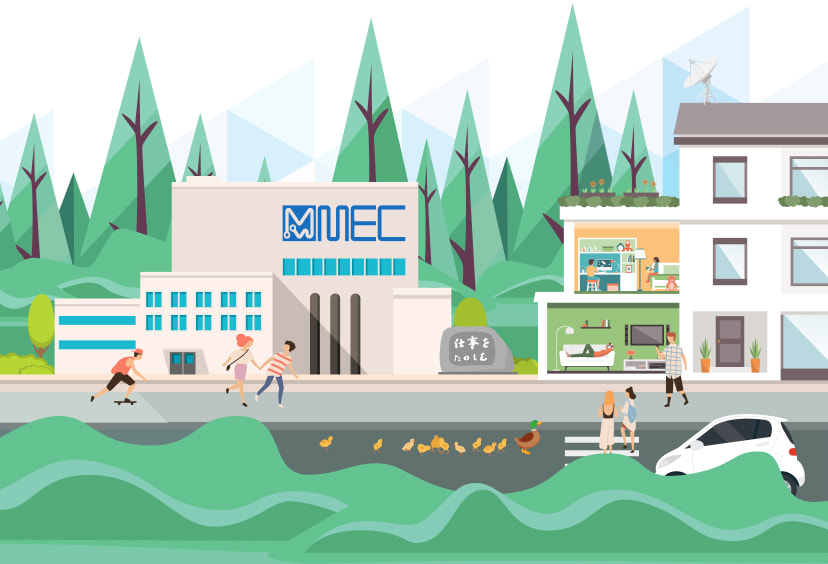Basic Policy
Together with Business Partners (Responsibility to Suppliers)
The MEC Group continues to be a corporate group that shares social responsibility with its suppliers, and jointly grows and contributes to society together with the suppliers.
Promotion of RBA (Responsible Business Alliance) -related Initiatives
With the aim of promoting socially responsible activities and achieving continuous growth together with our suppliers, we also ask them to fulfill CSR and have business continuity plans (BCP) and asking for a consent form, in accordance with the above-mentioned RBA Code of Conduct.
Basic Idea of Raw Material Procurement
|Promotion of CSR Procurement|
When purchasing raw materials, we select suppliers based on clear criteria such as quality, cost, delivery time, and technical capabilities. We also attach great importance to the environmental conservation efforts of our suppliers. When purchasing raw materials, we confirm the dangers and hazards while also complying with laws and regulations and protecting the environment. In consideration of the natural environment and human rights, we will procure environmentally friendly raw materials and engage in activities to recycle raw materials and containers. At the same time, we will continue to endeavor to engage in responsible resource procurement and build relationships of trust with business partners that are consistent with this approach.
Response to Conflict Minerals
In terms of our response to conflict minerals, for raw materials containing applicable minerals, we conduct surveys of manufacturers using the CMRT survey and endeavor to engage in responsible resource procurement. In addition, although we do not use raw materials containing cobalt or mica, we are gathering information by attending external training sessions on responsible mineral procurement, etc.
Responsible Minerals Sourcing Policy
MEC Group is committed to not being involved in human rights violations and to proactively and voluntarily addressing global environmental issues.
・We do not tolerate any human rights violations in the procurement of minerals used in our products.
・We do not engage in business relationships with parties that violate human rights or participate in activities that lead to the deterioration of social, economic, or environmental conditions.
Building Appropriate Relationships with Logistics Companies
|Responding to the 2025 Problem in the logistics industry|
With the Work Style Reform Act taking effect in April 2024, imposing a cap on overtime work hours for truck drivers in the logistics industry, there are concerns about a shortage of transportation capacity. We give support for improving the productivity of truck transportation and the efficiency of logistics, as well as the “White Logistics” movement (an initiative in Japan aimed at improving the productivity of truck transport and the working environment of people working in the logistics industry). We also hold discussions with logistics companies in advance, review contracts with mutual agreement, and work to secure legal and appropriate transport volumes.
In 2025, we will continue to strengthen cooperation with logistics companies to build an efficient logistics system and reduce environmental impact.
Appropriate Response toward Act against Delay in Payment of Subcontract Proceeds, etc. to Subcontractors
We are subject to the so-called Subcontract Law, which requires stricter treatment of suppliers with capital below a certain level. In FY2024, we provided training related to the Act Against Delay in Payment of Subcontract Proceeds, etc. to Subcontractors to personnel working in the Procurement Department, who serve as liaisons with suppliers. We will continue our efforts in line with the spirit of the Act Against Delay in Payment of Subcontract Proceeds, etc. to Subcontractors.
